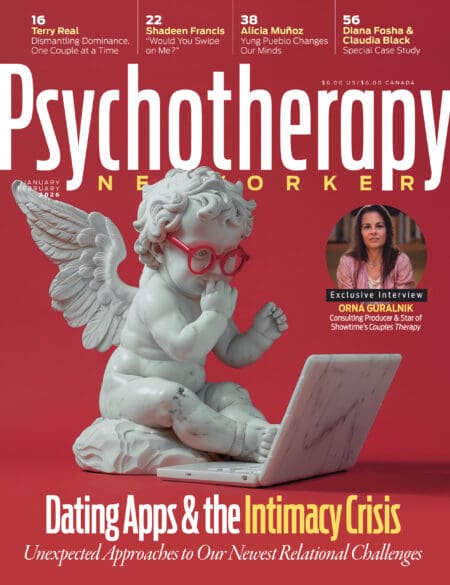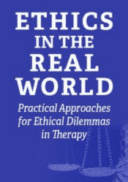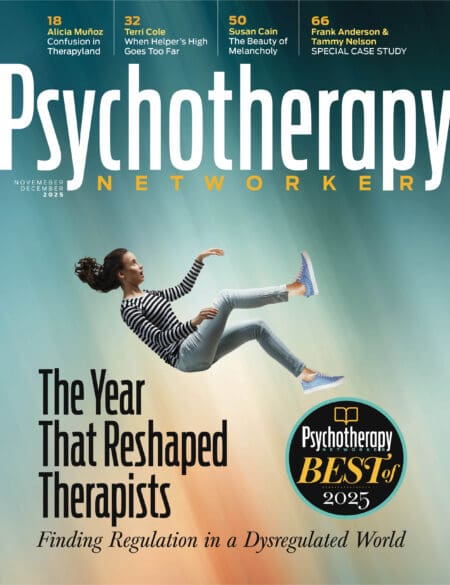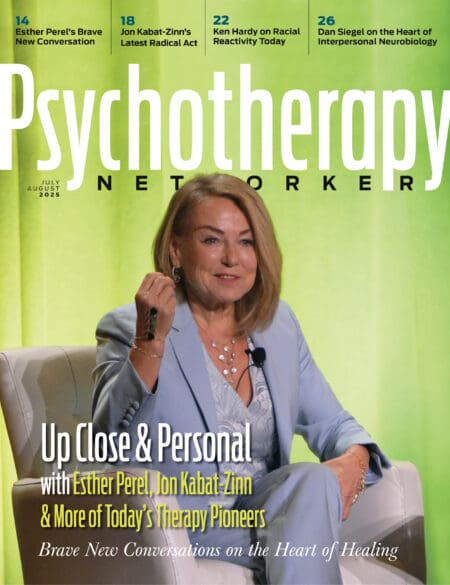Enjoy the audio preview version of this article—perfect for listening on the go.
When I was a kid, my teachers nicknamed me Giggles. More than once I got thrown out of class for not being able to stop laughing. Some nights it was hard to fall asleep because I couldn’t stop grinning at some joke a friend had cracked that day. You could say I was a serious comedy junkie.
I still revel in the fundamental absurdity of life, and the way laughter zips me into the present moment. But at some point in adulthood, I began to crack up less often, less loudly, and less uncontrollably. Gradually, I stopped moving through life as a bouncy, lighthearted imp. For many years, Giggles went underground.
I suspect this happens to a lot of us as we march purposefully into our adult lives: we put away some of the joyful boisterousness of childhood in favor of grown-up identities and responsibilities. After all, we have jobs to do, bills to pay, kids to raise, chores to juggle. But, according to several of our authors, a playful child still lives inside us and may be knocking, or even pounding, on the door to get out—even as heavy challenges encircle us.
This issue of the magazine addresses our universal need to play—at every age. In 2018, a body no less eminent than the United Nations Human Rights Council declared that play is a human right, critical to children’s physical, emotional, and cognitive development; and hundreds of studies attest to our need to play throughout the life span.
It got our staff wondering: If play is so vital to our health and well-being, why isn’t it emphasized more in the adult therapy world? And for those who take the leap and inject some humor into sessions, what kinds of approaches seem to work best? We look at therapists’ favorite tools for engendering high spirits, the hazards of certain brands of humor, and how—when used with care—playful moments can cement the therapeutic relationship and shift a client’s perspective on their suffering. As one of our writers observed, “Shared laughter can truly transform the hard work of treatment.”
These days, I’m letting my goofball self out more. I know my sense of humor isn’t everyone’s cup of tea. I tend to make crass jokes in front of the wrong audience (i.e., my mom) and recount the same anecdotes over and over that amuse me (but definitely not my partner). Luckily, my one-year-old thinks I’m hilarious. Our shared glee heals all the 5 a.m. wake-ups, the food thrown on the floor, the loudly protested diaper changes. One well-timed peek-a-boo and we’re doubled over with laughter. As he grows, I find myself tapping into more of the silly, exuberant version of myself that I’d long kept in a back drawer.
As you consider the serious work of playing in therapy, I hope there are parts of this issue that make you chuckle—if not outright giggle. And may that laughter spread freely!
Livia Kent
Editor in Chief
P.S., Make sure to check out this special video we put together, with clips of your colleagues acting out their silliest moments in therapy!
Livia Kent
Livia Kent, MFA, is the editor in chief of Psychotherapy Networker. She worked for 10 years with Rich Simon as managing editor of Psychotherapy Networker, and has collaborated with some of the most influential names in the mental health field on stories that have become widely read articles and bestselling books. She taught writing at American University as well as for various programs around the country. As a bibliotherapist, she’s facilitated therapy groups in Washington, DC-area schools and in the DC prison system. In 2020, she was named one of Folio Magazine’s Top Women in Media “Change-Makers.” She’s the recipient of Roux Magazine‘s Editor’s Choice Award, The Ledge Magazine‘s National Fiction Award, and American University’s Myra Sklarew Award for Original Novel.








